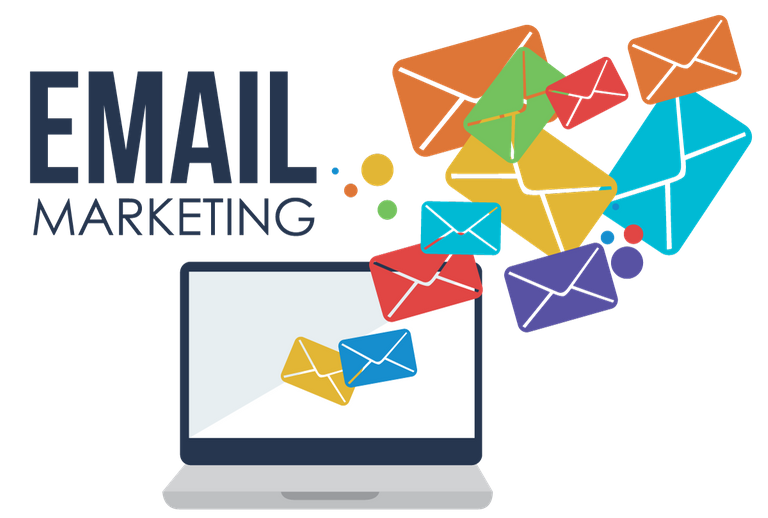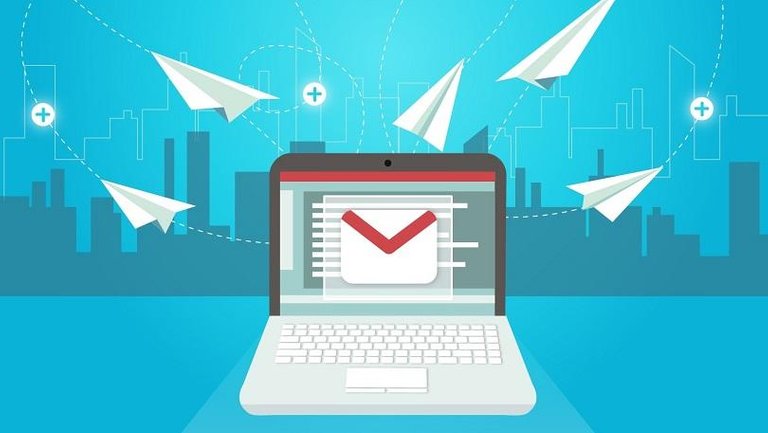
Email marketing is directly marketing a commercial message to a group of people using email. In its broadest sense, every email sent to a potential or current customer could be considered email marketing.
However, the term is usually used to refer to:
-----Sending emails with the purpose of enhancing the relationship of a merchant with its current or previous customers and to encourage customer loyalty and repeat business.
-----Sending emails with the purpose of acquiring new customers or convincing current customers to purchase something immediately.
-----Adding advertisements to emails sent by other companies to their customers.
Email marketing has several key advantages over traditional mail marketing, including the following:
-----An exact return on investment can be tracked and has proven to be high when done properly. Email marketing is often reported as second only to search marketing as the most effective online marketing tactic.
-----Advertisers can reach substantial numbers of email subscribers who have opted in to receive email communications on subjects of interest to them.
-----Over half of all Internet users check or send email on a typical day.
-----Email allows marketers to reach out to consumers with personalized, relevant, dynamic messages.
-----Transactional emails allow businesses to respond automatically to important consumer events like purchases or shop-cart abandonment.
The disadvantages of email marketing surround the rejection/spam rate of the emails by the consumers’ email program, negatively affecting the delivery rate of the emails.
This has somewhat been eliminated with the idea of “Opt-in” emailing, where the consumer consents to receiving the emails and therefore eliminates the idea of receiving unsolicited emails – Ideally maintaining emails that are relevant and appropriate to each individual recipient.
So the questions are why and how should one go about email marketing? Well here are a few thoughts on the matter:
Why?
Cost – Email marketing is CHEAP, there are no two ways about it. Whether you do it yourself, or through an email marketing agency, marketing to hundreds of consumers via email is going to cost you tiddlywinks compared to other channels of advertising.
Success - Emails can be targeting specifically to the ideal consumer. With this concept in mind, along with email cost-effectiveness, it’s no wonder that email marketing’s ROI often blows other direct marketing strategies out of the water – The trick is that you have to get it right!
Measureability and Flexibility – With the analytics available today, it’s easy to track responses to your emails exactly, in order to work out what parts of your campaign are working and what parts aren’t. With this knowledge, you can then react instantly to modify your campaign strategy if need be.
How?
Creative – This refers to the overall design of the email (layout/images/colour). Specifically, it is a good idea to ask each customer whether they would like the emails in text or HTML as there is often a great preference for one over the other.
Relevance – Targeting, targeting, and more targeting. Make your emails relevant and personalized to each recipient if you want that response rate to rise.
Personalization- The term personalization means directing a message to an individual by using their first name or the full name they used to sign up on your website. If you notice the email you are reading right now, I started by mentioning your first name.
This type of email connects very well with the person it's been sent to. If you want to achieve this result too, all you have to do is enter the word [[firstname]] anywhere you want their name to appear.
i.e, [[firstname]], how are you today?
When you send a message like this to any of your subscribers, below is the result
Sola, how are you today?
Make sure you open and close the bracket e.g [[firstname]]
Incentive - Recipients look at emails and think “WIIFM?”, i.e. “What’s in it for me??”. There’s no such thing as a free lunch right? Well… Offer the recipient a “free lunch” for participating and they will be more likely to respond.
Timing – Don’t send out an email that recipients will receive overnight, let it pop up in their inbox during their working day. This also expands to selecting certain days, months and even years. Remember – You can test and measure what timing works best for which email.
Integration – Companies can not just rely on one method of marketing, nor can they rely on several methods of differentiated marketing. Instead, best marketing practices utilize integrated marketing communication (IMC) where all aspects of their promotion work together to create a whole.
Copy – When considering the copy writing for your email you must consider all aspects of the language, from subject line through to your mail signature. With emails, not all links should be saved for the last sentence, pop them in early to grab that impulsive customer!
Attributes – email header, with attributes including the subject line, from address, to address, date/time of receipt and format. Once again, testing your campaigns can rule out the attributes that customers consider spam and highlighting the attributes that will work best for your business.
Landing Page – Want those emails to turn into sales conversions? Don’t just hyperlink your customers to your home page; show them exactly where you want them to go and make it quick and easy to complete any forms!
So yes… Email marketing is a vital component in many industries, especially for creating those important customer-firm relationships. Learn to use it well and it will definitely bump up your company’s success.
Email marketing can either be self hosted or You can get an email hosting service.
Self hosted email marketing is more technical and I don't use because a lot of emails end up in the spam folder. But if you use an email hosting service, it is easier to manage especially for a beginner like you and it is also much more effective in delivering messages into the inbox of your subscribers.
Now that you understand what email marketing is and how it works, if you want to start your email marketing campaign, I am going to recommend a company that you will use for this purpose.
I use getresponse and aweber for my email hosting service. I highly recommend getresponse because it is much more easier to operate. If you want to start using getresponse, follow this link to sign up www.getresponse.com
Assuming you have successfully signed up on the website, you will receive 30days free subscription. You will use their service for 30days without paying a dime!
Use this free subscription to familiarize yourself with how email marketing really works. After which you can now pay for the monthly subscription. The higher your lists grows the higher your monthly subscription.
Only pay up your subscription fee when you are ready to start building your list. The reason is because, once you pay your first subscription, you will continue to pay the renewal fee every month whether you use their service or not. And if you fail to renew your subscription, you will only be able to use the service for just two weeks after which your account would be deleted and you will lose your data and the list you have built so far.
Important terms in email marketing that you must understand
Webforms- They are pre designed templates that comes in form of html code/javascript.
Once you design an optin form/webform, using the predesigned template that is provided by your email hosting company, you will generate the html code and insert it in any place you want the form to appear on your website.
Double optin- When you insert an optin form/webform on your website, after a subscriber fills the form on your website, they will need to confirm their email before they can receive the report they have opted for. It is after they have confirmed their email address that their email will be added to your list.
Single optin- When a subscriber fills the optin form/webform on your website, the email is immediately added to your list and the subscriber does not have to confirm their email address.
Newsletters- This is the email message that you compose and send to your subscribers

Autoresponder- This is the programmed email that is being sent to your subscribers on auto pilot. You can program/schedule an automatic message to your subscriber for a period of one year. You can also refer to autoresponders as follow up messages.
Once you program these emails as follow up messages, the follow up/autoresponder message delivers to your subscribers automatically. An example of such email is the one you are reading now. I have programmed this email to be sent to you today since two months ago.
You can use follow up messages during vacation or when you want to deliver an online tutorial. Just like the online tutorial you are reading right now.
You can also use follow up messages to market subsequent products to your subscribers after they have subscribed for the first email/report from you.
Campaign- When you create a campaign, you are doing so to promote a particular product and any follow up email / autoresponder that you create for this campaign will be sent only to those who have opted to the list under this campaign.
e.g when you want to build a list for make money online, and you also want to build a list for weight loss, you have to group these niches into a separate campaign and then create follow up emails directed to each campaign.
Importing/exporting of email- Importing of email is creating a back up of your email list from your email hosting service and keeping it in a safe place incase you have a problem with your hosting service in future.
Exporting email is adding an existing list of emails to a campaign on your email hosting service provider.

this is creative bro
Well-done bro hustle go pay one day bro.
Sure
Lolz